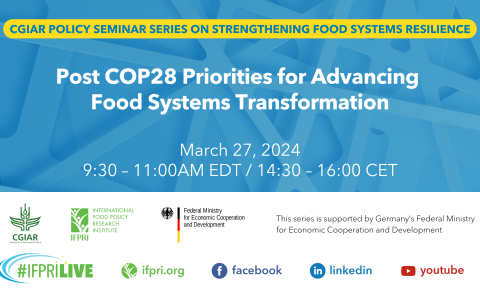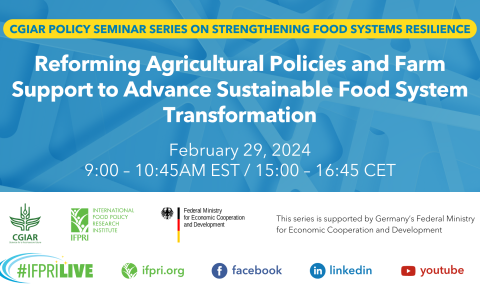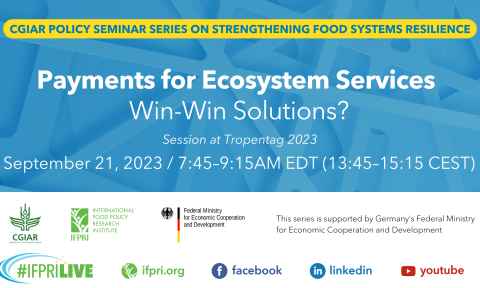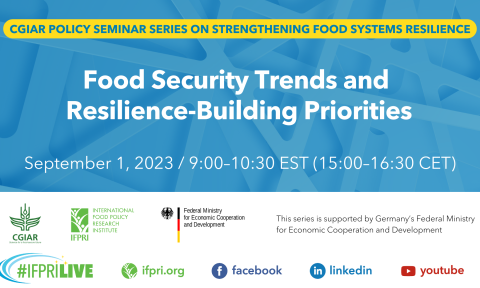Even before the February 2022 invasion of Ukraine, millions of people worldwide, especially those in low- and middle-income countries, faced rising food and energy prices resulting from the consequences of climate change and environmental degradation, the COVID-19 pandemic, conflict, and social inequality.
The war in Ukraine has put food systems around the world at greater peril. Projections by the World Food Programme suggest that the conflict could place up to 47 million more people at risk of acute hunger worldwide. Given the multiple shocks to food systems—and the possibility of their increased frequency—the need to build greater resilience in food systems is urgent. To be most effective, resilience-building efforts must be evidence-based, balance tradeoffs, and align with crisis response measures.
Organized by IFPRI, this CGIAR policy seminar series brings together speakers from CGIAR centers and their partners, as well representatives from government, international organizations and nongovernmental organizations, to examine the evidence base for resilience-building priorities and approaches. The series, sponsored by the German Federal Ministry for Economic Cooperation and Development (BMZ), will run through June 2024, when the German government will mark 50 years of support to CGIAR.
2023 Global Food Policy Report: Rethinking Food Crisis Responses
Upcoming Seminar Event
Post COP28 Priorities for Advancing Food Systems Transformation
Co-organized by IFPRI, CGIAR, and Germany’s Federal Ministry for Economic Cooperation and Development (BMZ)
Mar 27, 2024 - 9:30 to 11:00am EDT
Mar 27, 2024 - 9:30 to 11:00am EDT
Virtual Event: March 27, 2024 - 9:30 AM- 11:00 AM EDT. This virtual event will take stock of food systems–related outcomes from COP28 and outline priorities for advancing them at both the international and country level in a concrete and meaningful manner.
All Seminar Events






